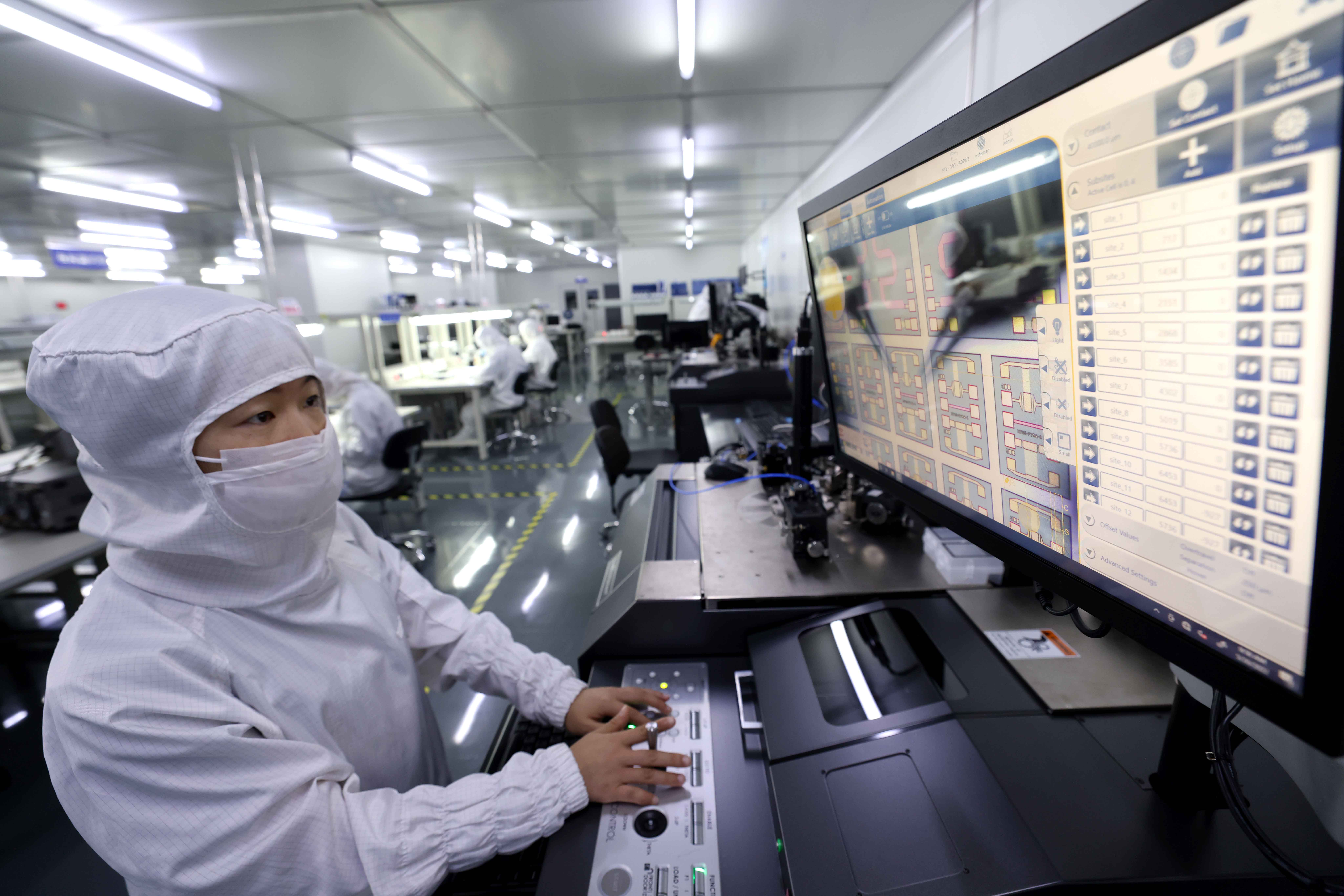Chip industry opposes curbs on sales to China

An employee calibrates equipment used in the manufacture of semiconductors at a company in Hefei, capital of East China's Anhui province. [PHOTO by XIE CHEN/FOR CHINA DAILY]
Association says US move hurting entire semiconductor biz, urges talks
The Chinese Semiconductor Industry Association said on Thursday it opposes the US Department of Commerce's latest restrictions on US-based hardware manufacturers selling advanced chips and chip-making equipment to China as they arbitrarily interfere with international trade.
"We hope that the US government can correct these wrong practices in a timely manner, return to the framework of the international trade consultation mechanism of the World Semiconductor Council and the Government/Authorities Meeting on Semiconductors, fully communicate, effectively exchange views and seek consensus," the association said in a statement.
The association reviewed the US Department of Commerce's new set of export controls published on Oct 7, which included a measure to cut China off from certain chips made anywhere in the world with US equipment.
The latest US export controls also tightened rules on the sale of semiconductor manufacturing equipment to companies that produce advanced logic chips in China.
Zhong Xinlong, a senior consultant at the Beijing-based China Center for Information Industry Development Consultancy, said the restrictions affect not only US semiconductor companies but also foreign companies that have advanced chip plants in China.
To mitigate the impact of the restrictions on their semiconductor supply chains, global chip enterprises are working hard to negotiate with the US Department of Commerce.
South Korean chip company SK Hynix Inc said on Wednesday it is working with its current suppliers and business partners as it is still authorized to engage in activities necessary to maintain current production of integrated circuits in China for one year without further licensing requirements.
SK Hynix received a letter from the US Department of Commerce's Bureau of Industry and Security clarifying its position with respect to its latest export control regulations.
"Our discussions with the (US) Department of Commerce led to an approval to supply equipment and items needed for development and production of DRAM — dynamic random access memory — semiconductors in Chinese facilities without additional licensing requirements," the company said in a statement to China Daily.
DRAM chips are flash memory components used in smartphones, personal computers and servers. SK Hynix has chip plants in Wuxi, Jiangsu province.
Quoting anonymous sources, Reuters reported that South Korea's Samsung Electronics also received a one-year waiver from the US government for its chip-making factories in China, to import semiconductor equipment without applying for permission from Washington. Samsung Electronics, however, told China Daily on Thursday it has no comment on the Reuters report.
Samsung has production lines in Xi'an, Shaanxi province, to make advanced NAND flash chips used for data storage in data centers, smartphones and tech gadgets. NAND is not an abbreviation or an acronym but a technical term; it is a type of high-end nonvolatile memory chip.
The chip industry's reactions show that the US government's restrictions on sales to China are, in fact, weighing down on not just Chinese companies but the global semiconductor industry, which is already suffering from a steep drop in demand for personal computers and smartphone components, said Bai Ming, deputy director of international market research at the Chinese Academy of International Trade and Economic Cooperation.
The Chinese mainland is the world's largest market for semiconductor manufacturing equipment. Sales of semiconductor equipment in the Chinese mainland reached $29.62 billion last year, up 58 percent year-on-year, accounting for almost 29 percent of the global semiconductor equipment market, according to data from SEMI, the global industry association that represents the electronics manufacturing and the design supply chain.
Fan Feifei contributed to this story.
Photos
Related Stories
Copyright © 2022 People's Daily Online. All Rights Reserved.









